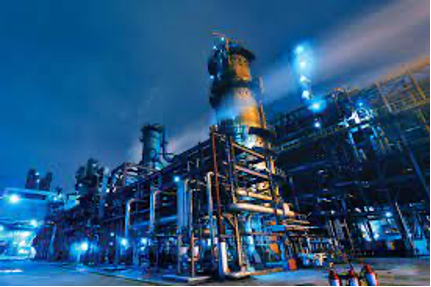The Powerhouse of Industry: Exploring the Petrochemical Plant
Introduction:
In the vast landscape of industrial facilities, petrochemical plants stand tall as the backbone of the modern world. These complex and sophisticated plants play a pivotal role in the production of a wide range of essential materials that form the building blocks of countless industries. In this blog post, we will delve into the fascinating world of petrochemical plants, exploring their significance, operations, and their immense impact on our daily lives.
Understanding Petrochemicals:
Before we dive into the inner workings of a petrochemical plant, let’s take a moment to understand what petrochemicals actually are. Petrochemicals are chemical compounds derived from petroleum or natural gas. They are the raw materials used to manufacture a plethora of products, including plastics, synthetic fibers, rubber, fertilizers, solvents, dyes, and many more. Petrochemical plants are responsible for the conversion of these hydrocarbon resources into valuable chemical intermediates and end products.
The Inner Workings of a Petrochemical Plant:
Petrochemical plants are marvels of engineering, housing a range of complex processes and equipment. Let’s explore some of the fundamental operations within a typical petrochemical plant:
- Feedstock Processing: The journey begins with the processing of raw materials, typically petroleum or natural gas. These feedstocks undergo several refining processes, such as distillation, cracking, and reforming, to obtain the desired chemical compounds.
- Chemical Reactions: Once the feedstock is processed, it enters various chemical reactors within the plant. These reactors facilitate crucial chemical reactions, such as polymerization, oxidation, and hydrolysis, to transform the raw materials into intermediate compounds or end products.
- Separation and Purification: The resulting mixture from chemical reactions is then subjected to separation processes, such as distillation, filtration, and extraction, to isolate and purify the desired petrochemicals. This step ensures that the final products meet the required quality and industry standards.
- Storage and Distribution: After purification, the petrochemicals are stored in tanks or containers within the plant before being distributed to customers. The storage and distribution processes involve careful handling, adherence to safety protocols, and efficient logistics management.
Significance of Petrochemical Plants:
Petrochemical plants play a vital role in shaping various industries and driving economic growth. Here are some key aspects highlighting their significance:
- Plastics and Packaging Industry: Petrochemical plants are the primary source of materials for the production of plastics, which have become ubiquitous in our daily lives. From packaging materials to consumer goods, plastics are essential components, and petrochemical plants ensure a steady supply of the necessary raw materials.
- Automotive and Transportation Sector: Petrochemicals provide crucial inputs for the automotive industry, including rubber for tires, plastic components for interiors, and lubricants for engines. Petrochemical plants cater to the growing demands of this sector, enabling the production of reliable and innovative transportation solutions.
- Construction and Infrastructure Development: Petrochemicals play a crucial role in the construction industry, providing materials such as PVC pipes, insulation materials, adhesives, and coatings. Petrochemical plants contribute to the development of robust infrastructure and facilitate advancements in construction techniques.
- Healthcare and Pharmaceuticals: Petrochemicals serve as the basis for the production of various medical and pharmaceutical products. From synthetic fibers for medical textiles to the production of active pharmaceutical ingredients, petrochemical plants support the healthcare industry’s growth and advancements.
Conclusion:
Petrochemical plants are the backbone of modern industrialization, supplying the materials that drive numerous sectors of the global economy. These plants convert hydrocarbon resources into a diverse range of petrochemical products, supporting industries such as plastics, automotive, construction, and healthcare. By continually innovating and ensuring a sustainable supply chain, petrochemical plants contribute to the progress and well-being of society, shaping the world we live in today and tomorrow.
